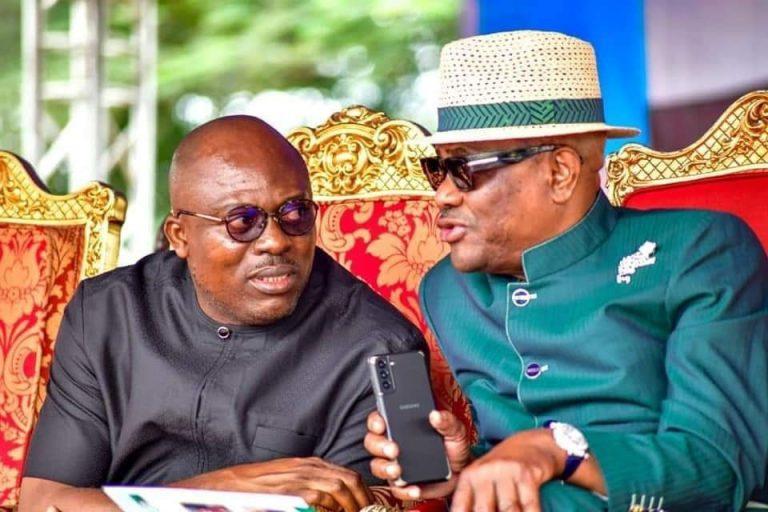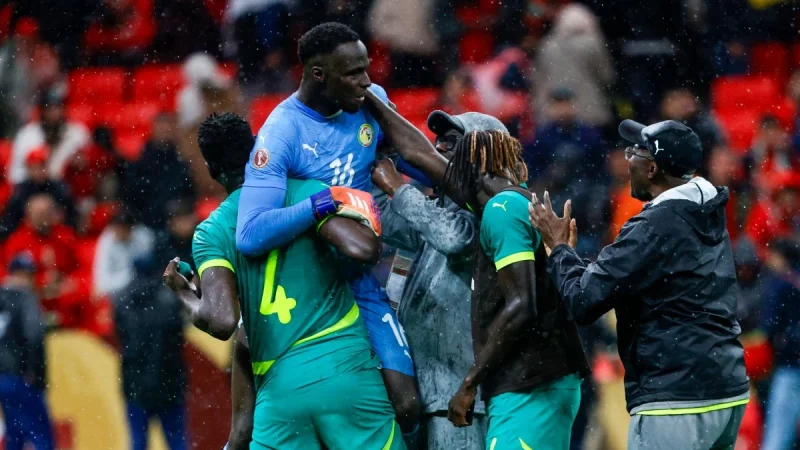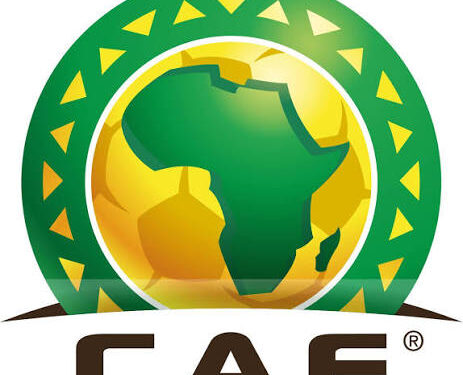Rivers of impunity and absurdism: For Rivers to survive, Wike’s political structure must be dismantled because it is not for the common good. The structure was set up for him to maintain a vice grip on the resources of the state for personal aggrandisement.
In his 1961 book, The Theatre of the Absurd, Martin Julius Esslin, a Hungarian-born British journalist and professor of drama, decried what he called absurdism – “the inevitable devaluation of ideals, purity, and purpose.”
Esslin, who died in London, United Kingdom on February 24, 2002, aged 83 years, couldn’t have had Nigeria’s oil-rich state of Rivers in mind when he wrote his famed book 63 years ago.
But nothing captures the state of affairs in Rivers State today more profoundly than Esslin’s absurdism theory because in truth, ideals, purity and purpose have been grossly devalued, sacrificed at the altar of one man’s insatiable crave for absolute control of the levers of power.
That Rivers State has become a theatre of the absurd in the last one year is an understatement. What is worse, the situation is getting more bizarre by the day, with impunity walking on all fours.
What manner of democracy are we practising in Nigeria where one man captures an entire state and all citizens become mere pawns on his political chess board?
Adept at self-deceit, on June 12, the Federal Government rolled out the drums in celebration of democracy. At the end of the day, it amounted to idolisation and deification of the powers that be with the unveiling of a large painting portrait of President Bola Tinubu at the Eagle Square, Abuja, touted as a message of hope for Nigerians and the African continent.
How a painting, even if it is the world’s largest painting portrait on a canvas as claimed by the promoters could translate to a message of hope for Nigerians and the African continent remains to be seen. But at best, it is a hollow ritual, typical of the puerile theatrics of the new kids on Nigeria’s power block and the country’s descent into the odious valley of hero-worshipping. But I digress.
Back to Rivers State where the Federal Capital Territory Minister, Nyesom Wike, would rather let the state he ruled with iron-hand for eight years burn than let go his “structure of criminality,” apologies to Mr Peter Obi, the presidential candidate of the Labour Party in the 2023 election, be dismantled.
But dismantled, the structure must be, if the state is to still have a fighting chance of making any progress. And this is not about Governor Siminalayi Fubara but the health of the country’s much-abused democracy and public good.
Truth be told, no one captures a state in the manner Nigerian politicians are doing and uses same in promoting public good. It can only be for self-serving aggrandisement, exactly what is happening in Rivers State.
This week, the madness in Rivers boiled over. Grenades exploded, lives were lost and the entire state stood on the edge, a dangerous tilt to the Hobbesian state of nature just because local government chairmen whose three-year tenure expired recently have refused to gracefully bow out.
Instead, they defied police order against planned protest by the Nigeria Union of Local Government Employees (NULGE) and poured out on the streets. After huffing and puffing, Rivers State police command looked the other way when it turned out that the protesters were pro-Wike. Like the axiomatic tortoise on a senseless journey, which said it will not return until it has been thoroughly disgraced, the former chairmen are spoiling for a war of blame, just to defend their godfather’s political structure and continued guarantee of stomach infrastructure at the expense of the people.
Explaining what he did at a New Year luncheon in his country home, Rumueprikom, Obio/Akpor Local Government Area on Sunday, January 7, 2024, Wike said, “Those who open their mouths to talk don’t know anything. I was the one who paid for the forms for anybody who wanted to run for elections as governor, House of Assembly and National Assembly. Let one person raise his hand and say he bought forms.”
Nobody controverted his claim. He also mentioned those who were at the meeting where he took the decision to include 71-year-old Chief Onueze Chukwujinka Joe (OCJ) Okocha, SAN, former Attorney-General and Commissioner for Justice, Rivers State, former President of the Nigerian Bar Association (NBA), life member of the Body of Benchers, former member of the National Judicial Council (NJC), and one-time Chairman of the Council of Legal Education; 72-year-old Sergeant Chidi Awuse, traditional ruler of Emuoha Kingdom and chairman of Rivers State Traditional Rulers Council; and 65-year-old Sir Celestine Ngozichim Omehia, a senior lawyer who was called to the Nigerian Bar in 1986 after obtaining a master’s degree in International Law (LLM) from the University of Hull, England and former governor of Rivers State, who was already Commissioner for Education in 1992 when 56-year-old Wike was an undergraduate at the Rivers State University of Science and Technology.
Apparently, none of them saw anything wrong in the idea of a democracy where only one man usurps the role of the people in deciding who governs them.
Boasting about how he single-handedly made Fubara governor, Wike thumped his chest: “If I had wanted another person, nobody would have stopped me. Nobody had what it takes to even be near me… If I wanted an Ikwerre man, nobody would have stopped me.”
This is not the language of democracy which is a government where people exercise the power of deciding who governs them.
Granted, godfatherism is a global phenomenon. But godfathers elsewhere use their personal resources to influence, not dictate, electoral outcomes. They support their preferred candidates by throwing their considerable weight behind them using moral suasion but they don’t foreclose competition because the ultimate decision lies with the people.
But here, those who have never worked anywhere else other than in government, corner the resources of the state entrusted in their care for the promotion of common good and use same to subjugate the people.
Take the case of Wike for instance. He had barely graduated from the Nigeria Law School where he proceeded to in 1997 after obtaining a bachelor’s degree in law from Rivers State University of Technology before he became chairman of Obio Akpor Local Government Area in 1999. In 2007, he was appointed chief of staff to Governor Rotimi Amaechi and in July 2011, he became Minister of State for Education under the Goodluck Jonathan presidency, substantive Minister of Education in September 2013 and ultimately two-term governor of Rivers from 2015.
There is no evidence that he inherited any family fortune that would account for the wealth he is using to finance the structure that has become a problem for Rivers State.
Yet, as at the time Wike left Port Harcourt for Abuja to assume duty as the Federal Capital Territory Minister, the entire Rivers political superstructure that included governor, state lawmakers, federal lawmakers, judiciary, local government chairmen and council of traditional rulers, was in his pocket.
As it were, his godson, Fubara, was supposed to be in government, a mere figurehead, while he will be wielding the ultimate power from Abuja.
But there is no perfect crime. Wike didn’t realise that the man he thought would be the strongest link in that conspiratorial chain of state capture, Fubara, would fall through the cracks sooner than later and the minister is battling to reconfigure his political structure, which he has vowed not to surrender.
The people must ensure that that does not happen. For Rivers to survive, Wike’s political structure must be dismantled because it is not for the common good. The structure was set up in order to maintain a vice grip on the resources of the state for personal aggrandisement.
The quarrel between Wike and Fubara is a divine intervention and the people cannot afford to sit on the fence. It is not going to be an easy battle because a lot is at stake but that is one battle that the people of Rivers must win and decisively too.
But beyond Rivers, Nigerians must fight against this cancer of malevolent godfatherism and culture of state capture, without which this democracy is doomed. Freedom does not come cheap. It has a price, which in the immortal words of Thomas Jefferson, philosopher, statesman, U.S. Founding Father, who served as the third president, is “eternal vigilance.” The good people of Kenya have just demonstrated that, forcing President William Ruto stepping back from signing a bill already passed by the parliament with contentious tax hikes.
“I concede and therefore I will not sign the 2024 finance bill and it shall subsequently be withdrawn,” Ruto said on Wednesday, adding, “The people have spoken.” That is the language of democracy. But it doesn’t come easy. Nigerians must brace up for a titanic struggle in defence of the hard-won democracy that is being devalued and adulterated by unscrupulous empire building autocrats masquerading as democrats.





